It will save time and money, remove frequent election-mode governance gaps.

Since public memory is woefully short, it may not be common knowledge that general elections for the Lok Sabha and state assemblies were held simultaneously initially – in 1951, 1957, 1962 and 1967. The cycle was broken by the disruption of some state assemblies in 1967, advancing of Lok Sabha elections to 1971 by PM Indira Gandhi and the dismissal of six state assemblies in 1978 by the Janata Party.
The debate over the timing of the election cycles has revived after the Standing Committee on Personnel, Public Grievances, Law and Justice submitted its report on the ‘Feasibility of Holding Simultaneous Elections to House of People (Lok Sabha) and State Legislative Assemblies’ on December 17, 2015 (see box). It was followed by the prime minister’s statement on September 15 in favour of the concept, and discussion on the MyGov web portal soliciting citizens’ views on holding simultaneous elections to Lok Sabha and state assemblies.
The benefits and drawbacks
Electoral reforms, especially simultaneous elections to Lok Sabha and state assemblies, are the need of the hour. As with any major change in policy and procedure, there are pros and cons involved in this. The cons in this regard are that (a) parties will use simultaneous elections as a platform to consolidate political advantage, (b) the logistival and financial obstacles seem insurmountable and (c) regional parties have expressed their concern regarding the constitutionality of conducting concurrent elections.
Esta historia es de la edición October 16 2016 de GovernanceNow.
Comience su prueba gratuita de Magzter GOLD de 7 días para acceder a miles de historias premium seleccionadas y a más de 9,000 revistas y periódicos.
Ya eres suscriptor ? Conectar
Esta historia es de la edición October 16 2016 de GovernanceNow.
Comience su prueba gratuita de Magzter GOLD de 7 días para acceder a miles de historias premium seleccionadas y a más de 9,000 revistas y periódicos.
Ya eres suscriptor? Conectar

the trump phenomenon
how the 2016 election exposed the us underbelly.

chinnamma is not amma
sasikala may have become the leader of the aiadmk, but she is a far cry from j jayalalithaa, who towered over tamil nadu politics like a colossus.

sakshi malik
sakshi malik is the first indian female wrestler to bag an olympic medal. the 24-year-old comes from mokhra village of rohtak, haryana. she came into the limelight as an international wrestler after she won bronze in the junior world championship in 2010. then, she went on to win silver in the commonwealth games in 2014 and a bronze at the asian wrestling championships in 2015. after rio olympics, malik was conferred india’s highest sporting honour – the rajiv gandhi khel ratna. she is also the brand ambassador of the beti bachao, beti padhao campaign in haryana.
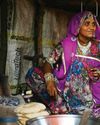
Across The Threshold
A social media campaign aims to bridge gaps between communities by urging people to visit ‘people unlike us’
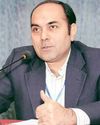
'How Can An Insurance Firm Promote Death?'
Dr Pankaj Chaturvedi, head and neck cancer surgeon at the Tata Memorial hospital in Mumbai, is a leading antitobacco activist. He joined hands with Sumitra Hooda Pednekar and others to file a PIL in the Bombay high court earlier this year, questioning the staterun insurance firm LIC’s investments in a leading cigarette-maker company. Edited excerpts from an interview with Geetanjali Minhas:
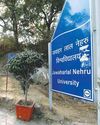
The Wolf And The Lamb
Social injustice and the fate of the university
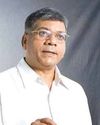
"Young Dalit Leaders Have Age, Situation On Their Side"
How do you see the rise of the Bhim Army in Uttar Pradesh?During the last assembly elections in UP, it was a common consensus among many [dalit leaders] that we’d give one more chance to Mayawati.

Timely Delivery
A veteran bureaucrat explains how to complete government projects without time and cost overruns.
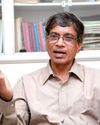
Cauvery Water Dispute
India’s leading water expert and president of the South Asia Consortium for Inter disciplinary Water Resources Studies, S Janakarajan, wonders why Chennai, a city that receives 1,250 mm rainfall, is called a thirsty city and goes on to explain to Shivani Chaturvedi what went wrong among the southern states that led to a water-war like situation. But, he warns that such a scenario will keep occurring if the government does not come up with a lasting solution.

Case Against Cash
Can you imagine a day without cash?